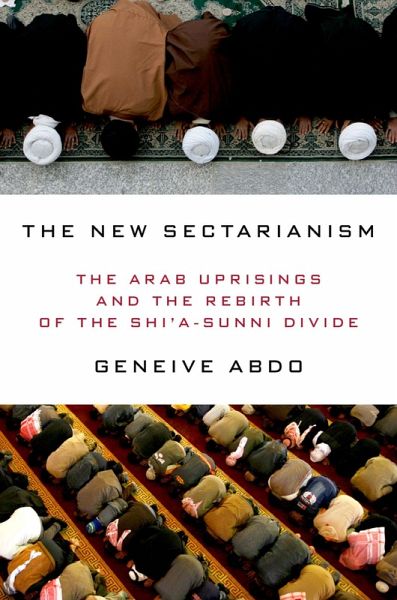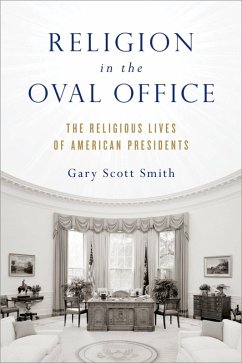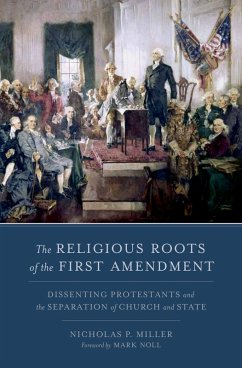
The New Sectarianism (eBook, PDF)
The Arab Uprisings and the Rebirth of the Shi'a-Sunni Divide
Versandkostenfrei!
Sofort per Download lieferbar
11,95 €
inkl. MwSt.
Weitere Ausgaben:

PAYBACK Punkte
6 °P sammeln!
The Shi'a-Sunni conflict is one of the most significant outcomes arising from the Arab rebellions. Yet, there is little understanding of who is driving this tension and the underlying causes. By delving deeply into the historical factors leading up to the present-day conflict, The New Sectarianism sheds new light on how Shi'a and Sunni perceive one another after the Arab uprisings, how these perceptions have affected the Arab world, and why the dream of a pan-Islamic awakening was misplaced. Geneive Abdo describes a historical backdrop that serves as a counterpoint to Western media coverage of...
The Shi'a-Sunni conflict is one of the most significant outcomes arising from the Arab rebellions. Yet, there is little understanding of who is driving this tension and the underlying causes. By delving deeply into the historical factors leading up to the present-day conflict, The New Sectarianism sheds new light on how Shi'a and Sunni perceive one another after the Arab uprisings, how these perceptions have affected the Arab world, and why the dream of a pan-Islamic awakening was misplaced. Geneive Abdo describes a historical backdrop that serves as a counterpoint to Western media coverage of the so-called Arab Spring. Already by the 1970s, she says, Shi'a and Sunni communities had begun to associate their religious beliefs and practices with personal identity, replacing their fragile loyalty to the nation state. By the time the Arab risings erupted into their full fury in early 2011, there was fertile ground for instability. The ensuing clash-between Islamism and Nationalism, Shi'a and Sunni, and other factions within these communities-has resulted in unprecedented violence. So, Abdo asks, what does religion have to do with it? This sectarian conflict is often presented by the West as rivalry over land use, political power, or access to education. However, Abdo persuasively argues that it must be understood as flowing directly from religious difference and the associated identities that this difference has conferred on both Shi'a and Sunni. The New Sectarianism considers the causes for this conflict in key countries such as Iraq, Syria, Lebanon, and Bahrain and the development of regional trends. Abdo argues that in these regions religion matters, not only in how it is utilized by extremists, moderate Islamists, and dictators alike for political purposes, but how it perpetually evolves and is perceived and practiced among the vast majority of Muslims. Shi'a and Sunni today are not battling over territory alone; they are fighting for their claim to a true Islamic identity.
Dieser Download kann aus rechtlichen Gründen nur mit Rechnungsadresse in A, B, BG, CY, CZ, D, DK, EW, E, FIN, F, GR, HR, H, IRL, I, LT, L, LR, M, NL, PL, P, R, S, SLO, SK ausgeliefert werden.













